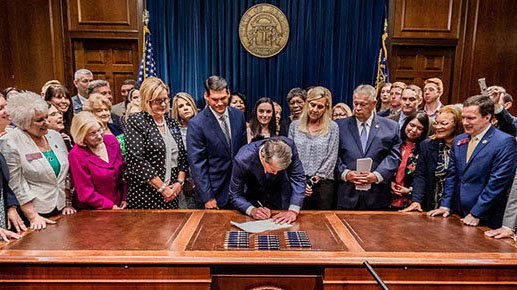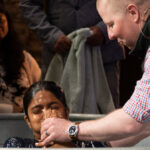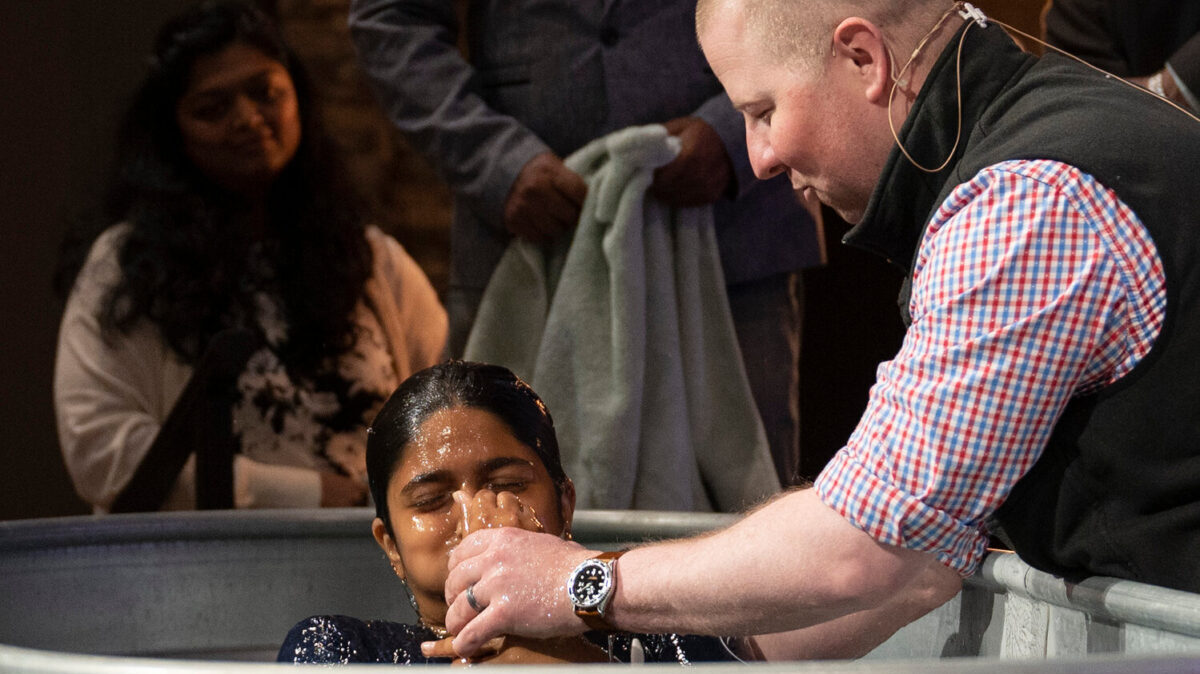Pro-life advocates celebrated a federal appeals court decision Wednesday (July 20) that allows a Georgia law to take effect banning nearly all abortions in the state.
“This is an exciting day, a day when Georgians in the womb are finally going to enjoy the same right to life as Georgians outside the womb,” said Suzanne Guy, a member of Woodstock’s First Baptist Church and one of the state’s most ardent abortion opponents. “This is a day that is going to be marked on the calendar and celebrated because thousands and millions of babies are going to be spared the tragedy of abortion.”
A three-judge panel of the 11th U.S. Circuit Court of Appeals ruled that a U.S. Supreme Court decision on June 24 overturning Roe v. Wade cleared the way for Georgia’s law to take effect.
‘The battle will continue’
“The heartbeat law now provides an important degree of protection for the unborn,” said W. Thomas Hammond Jr., executive director of the Georgia Baptist Mission Board. “But it’s important also for us to remain vigilant because this battle will continue.”
Georgia Gov. Brian Kemp said the appeals court decision “affirms our promise to protect life at all stages.”
“We’re overjoyed that the court has paved the way for the implementation of Georgia’s [Living Infant Fairness and Equality] Act, and as mothers navigate pregnancy, birth, parenthood or alternative options to parenthood — like adoption — Georgia’s public, private and nonprofit sectors stand ready to provide the resources they need to be safe, healthy and informed,” Kemp said on Twitter.
Georgia Attorney General Chris Carr had filed a brief with the appeals court immediately after the Supreme Court ruling, asking that the state’s law banning abortions after a heartbeat is detected be allowed to take effect.
The appeals court had given lawyers three weeks to file written briefs in the case.
The Georgia law is expected to stop close to 90% of the state’s abortions. It bans the procedure once a heartbeat is detected, which can be as early as six weeks into a pregnancy. Exceptions were included in the law that allow abortions in cases of rape or incest, when the woman’s life is in danger, or when the baby isn’t “viable.”
The three-judge panel said the Supreme Court’s decision overturning Roe v. Wade “makes clear no right to abortion exists under the Constitution, so Georgia may prohibit them.”
The appeals court also rejected arguments that a so-called “personhood” provision in the law is unconstitutionally vague. The provision grants personhood to an unborn baby, providing the same legal rights that people have after birth.
Next steps
Some Georgia lawmakers are already planning to push for legislation that would ban abortion entirely the next time they convene, which is scheduled for January.
Josh Saefkow, chairman of the Georgia Baptist Executive Committee and pastor of Flat Creek Baptist Church in Fayetteville, called the court of appeals ruling “great news.”
“It’s a great opportunity for Georgians to be the hands and feet of Jesus, to be here for these families,” Saefkow said.
Mike Griffin, the Georgia Baptist Mission Board’s public affairs representative, called the law one of the most meaningful and impactful ever enacted in the state.
“Through the LIFE Act, our state has now codified the ‘personhood’ of the unborn, who possess unique DNA, a circulatory system, and blood type,” Griffin said. “Georgia Baptists stand firmly behind all of the courageous legislators who stood with Governor Kemp and were willing to defend the most vulnerable among us.”
Chief Judge William Pryor wrote for a unanimous three-judge panel that the state had a “rational basis” for the law, given its interest in “providing full legal recognition to an unborn child.”
“Because we take the Supreme Court at its word, we must treat parties in cases concerning abortion the same as parties in any other context,” Pryor wrote. “And to the extent that this Court has distorted legal standards because of abortion, we can no longer engage in those abortion distortions in the light of a Supreme Court decision instructing us to cease doing so.”
EDITOR’S NOTE — This story was originally written by Roger Alford and published by the Christian Index.










